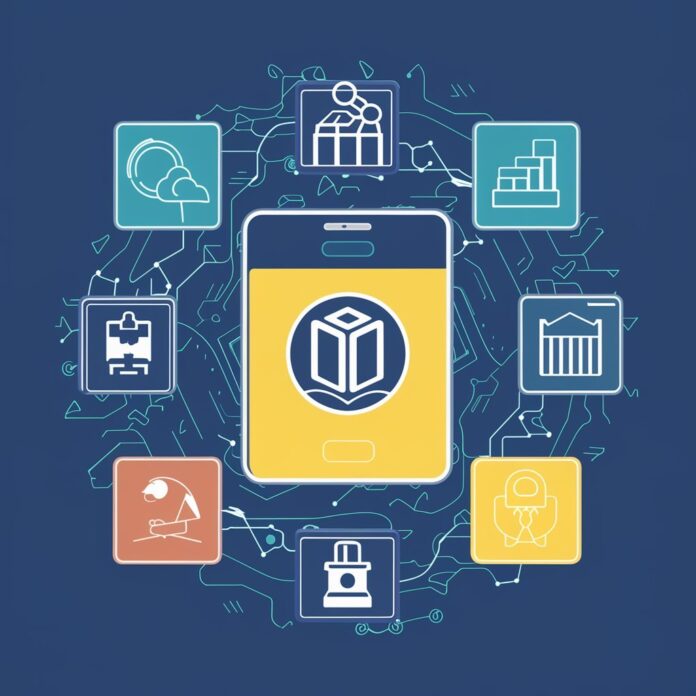In the interconnected and fast-paced business world, where onboarding of new customers occurs every minute, there’s an increased rate of financial crimes, undermining financial inclusion and hindering economic growth. Customer onboarding is a process of enhancing new customers’ acumen about the services or products and is an essential aspect for businesses, enhancing customer retention and loyalty and boosting revenue. With technological advancements, digital onboarding solutions are implemented to automate the process and offer a user-friendly approach for customers.
Leap in Digital Onboarding Solutions
Technological growth has taken the world by storm offering both innovation and convenience. This development has streamlined many aspects of lives, making it easier for people and businesses to smoothly run their operations. Technology has offered great benefits to financial institutions, automating onboarding and know-your-customer processes and increasing overall operational efficiency. Digital onboarding solutions for banks are significantly optimizing KYC & AML processes and offering a more efficient onboarding approach.
Why Traditional Methods Fall Short
Digital onboarding solutions for banks are facilitating financial institutions and helping businesses to streamline compliance with know-your-customer (KYC) and anti-money laundering (AML) standards. Considering the stringent guidelines issued by jurisdictions, traditional methods of customer onboarding and risk assessment fall short, as there are increased chances of errors, and the processes are time-consuming. Traditional methods are executed manually, customers have to undergo a lengthy verification and multiple forth & back communications with the institutions make the process a bit frustrating and tedious.
Digital onboarding solutions integrated with advanced artificial intelligence software and sophisticated machine learning networks automate the KYC & AML process and reduce the chances of errors. Furthermore, the process is accomplished in a matter of moments. Reducing the workforce and making it effortless for financial institutions to ensure accurate identity verification for digital onboarding.
In What Ways Digital Onboarding Solutions Impacting Identity Verification
Digital onboarding solutions facilitate financial institutions to offer an efficient, secure, and user-friendly onboarding approach for customers, enhancing trust and confidence in the systems. By integrating advanced and sophisticated technologies, banks can effortlessly improve customer experience, enhance the operational efficiency of their systems, and ensure compliance with regulatory standards.
Impact on the KYC Processes
Implementation of advanced tools like facial recognition or biometric authentication offers seamless verification of newly joined customers and sophisticated algorithms accurately authenticate the identity, validating customer’s information precisely. Additionally, these algorithms and tools are sophisticated enough to cross-reference the presented identity against the official documents to ensure the credibility of the customers.
- AI algorithms and advanced technology securely substitute traditional methods, once the documents are uploaded the required information is extracted and the identity is confirmed, reducing the chances of errors and minimizing the workforce required for this procedure.
- Machine learning models are trained on large volumes of datasets and inconsistent patterns, making it effortless to flag suspicious activities or unusual behavior. These real-time alerts and prompt risk assessments, ultimately lower the chances of fraudulent activities and mitigate the threats before they escalate.
Impact on AML Processes
Digital onboarding solutions for banks are extensively adopted and aid in adhering to AML standards, making it effortless for financial institutions to show compliance and streamline the customer onboarding process.
- Digital onboarding improves the Customer Due Diligence process, as the data collection and verification are performed automatedly, and customer risk assessment is executed to identify risk levels associated with the customers.
- Digital onboarding solutions integrated with transaction monitoring tools offer remarkable benefits to institutions, detecting suspicious transactions and allowing real-time analysis of customer behavior. This timely detection mitigates the risks of fraudulent activities before they escalate.
- Financial institutions are mandated to preserve the trails of KYC & AML activities and the measures they take to ensure compliance with the regulatory standards. Digital onboarding solutions aid FIs by providing comprehensive tools that keep records of every customer interaction, enhancing accountability and transparency.
- Most significantly, digital onboarding solutions for banks facilitate FIs in multiple jurisdictions to remain compliant across all regions, mitigating the challenges of adhering to varying regulations.
Potential Advantages for Financial Institutions
The most significant benefit of implementing digital onboarding solutions is improved customer experience, customers can complete their verification and onboarding process by sitting at home, eliminating the need to visit for in-person visits. Digital onboarding is essential in ensuring that FIs remain compliant with updated regulations and secure.

